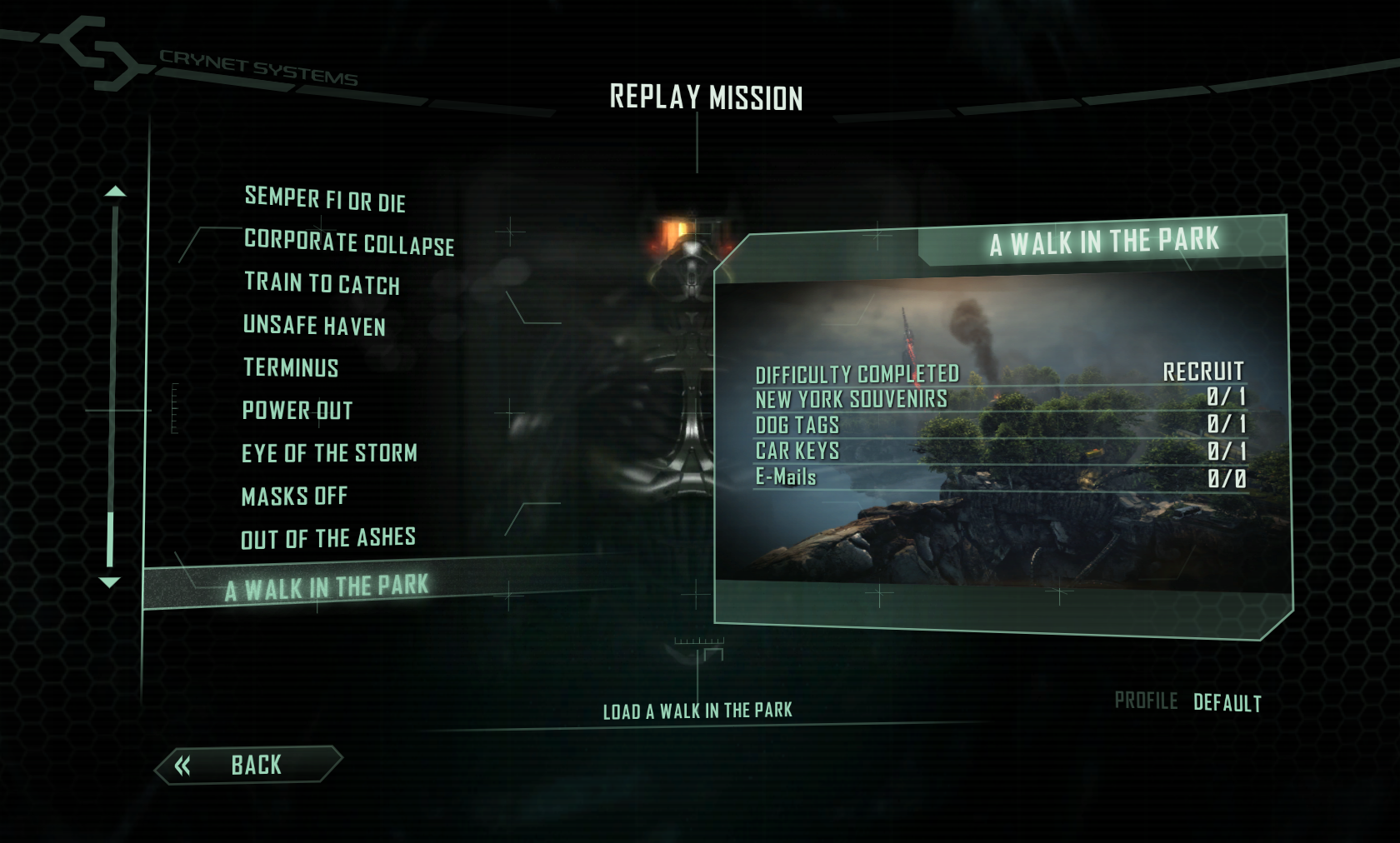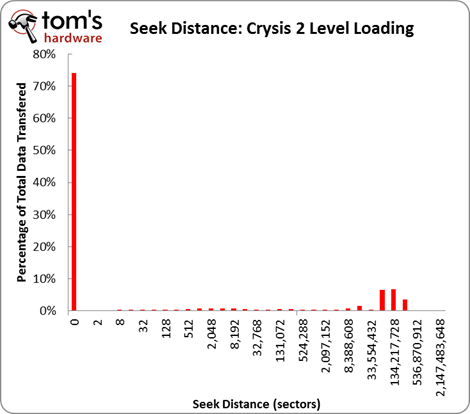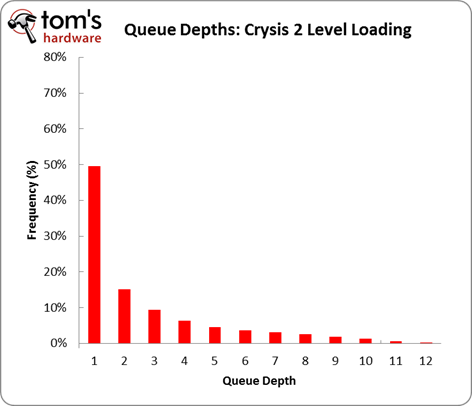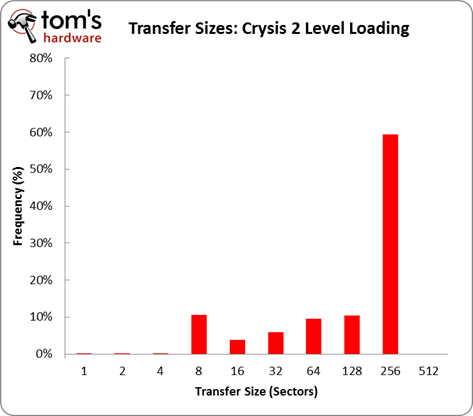SSD Performance In Crysis 2, World Of Warcraft, And Civilization V
Loading Levels In Crysis 2
Loading a level is actually more storage-intensive than launching the game. This makes sense, since you aren't loading lots of graphics data until you start playing the game itself.
| Overall Statistics | Crysis 2: Level Loading |
|---|---|
| Elapsed Time | 00:58 |
| Read Operations | 9 493 |
| Write Operations | 395 |
| Data Read | 755.01 MB |
| Data Written | 26.49 MB |
| Disk Busy Time | 2.27 s |
| Average Data Rate | 345.00 MB/s |
When we load the last level in Crysis 2 (A Walk in the Park), our Vertex 3 has to read more than three-quarters of a gigabyte. Almost all of the operations are sequential in nature, but the majority of them occur at a 128 KB transfer size. That's a large enough chunk of data that there's no bottleneck imposed by little tiny transfers, as there was before. In short, you'll see a substantial speed-up loading a level on a SSD compared to a hard drive.
I/O Trends:
- 46% of all operations are 128 KB in transfer size
- 50% of all operations occur at a queue depth of one
- 15% of all operations occur at a queue depth of two
- 10% of all operations occur at a queue depth of three
- 75% of all operations are sequential
Get Tom's Hardware's best news and in-depth reviews, straight to your inbox.
Current page: Loading Levels In Crysis 2
Prev Page Launching Crysis 2 Next Page Gameplay In Crysis 2-
the_krasno If it doesn't improve FPS I don't see competitive gamers adding SSD's to their rigs for nothing but main OS drive.Reply
Longer loading times are not crucial when all you want is to frag your enemies! -
Soma42 This just confirmed what I knew already. I will probably upgrade to a SSD with my next build, but they are still so bloody expensive for the storage they offer. Plus, SSD are supposed to have better reliability compared to magnetic drives.Reply -
crewton I took WoW off my SSD for 2 reasons: space and performance. WoW is just way too big of a folder with addons and everything else it was around 35GB and like this article states the start and initial load is really the only benefit. Once you are in the world (of warcraft) it's not used.Reply
I'd like to see how the witcher stacks up with SSD. You are constantly having to load different areas the entire game so I made sure to have that on the SSD while playing it hoping to reduce the load times. Would like to see if that really paid off or not. -
Nnymrod It's all about the bottleneck, which isn't storage for actually playing a game. That said, SSDs are definitely cool, and I have one.Reply -
AlexIsAlex So it looks to me like game loading and level loading is not significantly hard-disk bound, if the disk is busy for such a short period of time. For example, loading a Crysis 2 level taking 58s, of which the disk is busy for 2.Reply
Does that mean if you had an infinitely fast disk, the level loading would take 56s? In which case, where is the bottleneck for level loading? Is it CPU bound? (if so, why isn't CPU usage at 100% when loading a level?) Memory? Graphics card? -
agnickolov There was supposed to be a comparison with a 1TB Barracuda, but nothing made it into the article itself. How hard could it be to display two adjacent bars on every graph instead of 1? E.g. red for the SSD and blue for the HDD.Reply -
celuloid Why don't we see how long are those loading times with HDD drive? Maybe we find out 2x faster loading is not worth 30x times more money per GB.Reply



